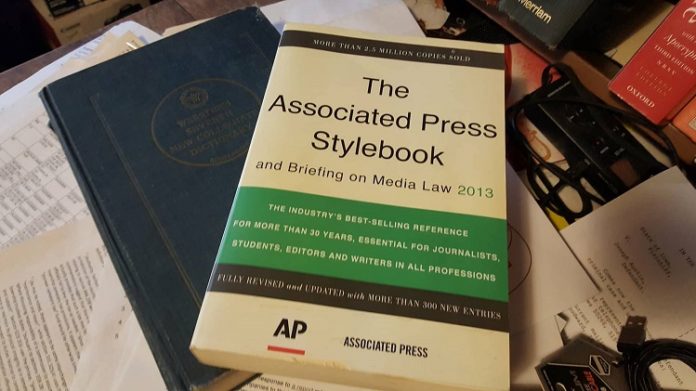
 Maybe I’m old-school, but I find myself longing for the days when journalists—or anyone writing content and sharing it with others—at least attempted to get the facts straight.
Maybe I’m old-school, but I find myself longing for the days when journalists—or anyone writing content and sharing it with others—at least attempted to get the facts straight.
Is this an unreasonable request? It seems so, in this era of fake news and being “first rather than accurate.”
That’s why this issue bugs me so much.
It started last week when I saw an article in an online ag news outlet about how 2017 yields weren’t dampened by wet harvest conditions. Then I saw that the article quoted some grain marketing specialists, including my friend Karl from Iowa, although they called him Carl.
The errors didn’t stop there.
Instead of listing his proper title of risk management team leader, the writer called him a “risk leader.” Wow—there’s a big difference between a risk leader and a risk management leader, I’d say.
I couldn’t resist e-mailing Karl.
From: Darcy Maulsby [mailto:yettergirl@yahoo.com]
Sent: Wednesday, November 01, 2017 10:13 AM
To: Karl
Hey Karl,
I see that you’re now Carl, risk leader. Cool title! ?
Hope you’re doing well.
Take care,
Darcy
From: Karl
To: Darcy Maulsby <yettergirl@yahoo.com>
Sent: Wednesday, November 1, 2017 10:19 AM
HAHAHA!!!
What’s even worse is I spelled out my name, first and last, to him, and my job title.
I believe he was an intern and was past the point of caring.
From: Darcy Maulsby [mailto:yettergirl@yahoo.com]
Sent: Wednesday, November 01, 2017 10:24 AM
To: Karl
Oh no–you handed him the info. on the silver platter, and he still screwed it up! Yes, definitely past the point of caring. Good thing he’s not a grain marketer. ?
From: Karl
To: Darcy Maulsby <yettergirl@yahoo.com>
Sent: Wednesday, November 1, 2017 10:22 AM
Exactly.
Then I had my own brush with inaccurate reporting. I was offering a history program and book signing in central Iowa recently. The event was covered in the local press, which was great, until I spotted three errors in one 22-word sentence.
I learned that I moved to Granger (not true—I still live in the country near Lake City and Yetter), my latest book came out last September (not exactly–it was released Sept. 4, 2017), and my book is called “Dallas County Images.” (Strike three. It’s “Dallas County,” which is part of Arcadia Publishing’s Images of America series).
Before I even read the article, I knew something was wrong, because a friend e-mailed me and asked if it were true that I had moved to Granger. (I lived near Granger from 2001 to 2006, and while it’s a great place, I have no plans to move back.) Oh boy.
So these two recent examples left me with one question. Why were there so many careless errors that the writers could easily have avoided?
I know we’re all human and make mistakes. Believe me, through the years I’ve had plenty of typos and mistakes creep into my writing that has been published in print and online. Still, I try to get it right by:
• Becoming a world-class listener
• Taking good notes
• Asking questions for clarification
• Doing my homework (such as checking the proper spelling of names, titles, dates, etc.)
• Requesting that the source (when appropriate) review information for factual accuracy
• Striving to do better and tell the most accurate, interesting stories possible
While these are helpful tips for any of us who want to become better communicators, they are essential for professional communicators. I don’t believe it’s unfair to hold professional communicators to a higher standard.
After all, accuracy isn’t old-fashioned, even if it is increasingly rare. It’s vital for clear communication that positions you as a trusted resource—an advantage that will never go out of style.
This blog post was reprinted with permission from Darcy Maulsby, “Iowa’s Storyteller.” Maulsby is an author, marketer, historian and farmer who owns Darcy Maulsby & Co., which specializes in creating clear, concise, compelling stories to help businesses connect with their audiences.
















